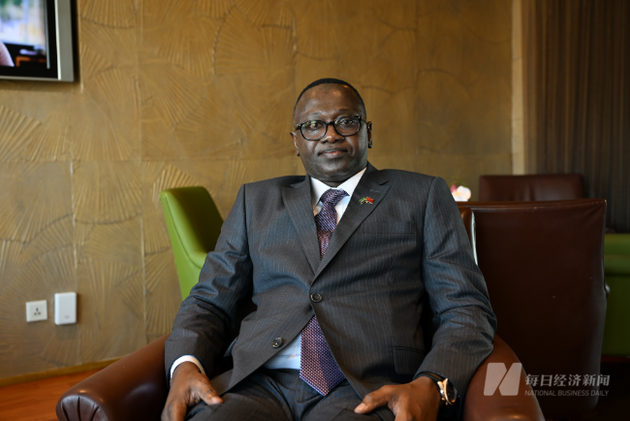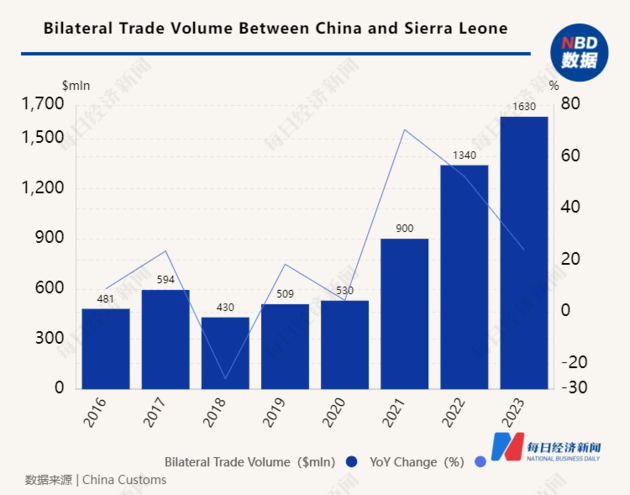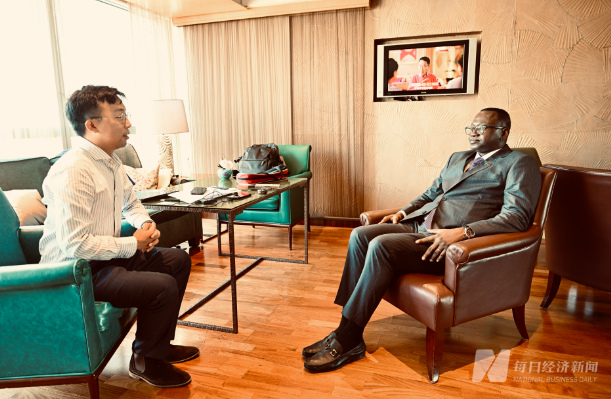The 2024 Summit of the Forum on China-Africa Cooperation (FOCAC) is held in Beijing from Sept. 4 to 6.
This marks another grand reunion of the China-Africa big family following the 2006 Beijing summit, the 2015 Johannesburg summit, and the 2018 Beijing summit of the FOCAC. It is also the largest diplomatic event hosted by China in recent years, with the highest attendance of foreign leaders.
Since the first FOCAC was held in October 2000, China-Africa cooperation has achieved significant results. China has maintained its position as Africa's largest trading partner for 15 consecutive years.
The year 2024 coincides with the 53rd anniversary of the establishment of diplomatic relations between China and Sierra Leone. This year, China and Sierra Leone have signed multiple bilateral cooperation documents in areas such as the joint building of the "Belt and Road Initiative," agriculture, economic development.
In the future, how can financial cooperation and trade relations between China and Sierra Leone be elevated to a new level? Recently, National Business Daily (NBD) had an interview with Sierra Leone's Minister of Finance, Sheku Ahmed Fantamadi Bangura, who arrived in China ahead of the FOCAC Summit.
Sheku Ahmed Fantamadi Bangura expressed that over the next five years, Sierra Leone hopes to strengthen cooperation with Chinese enterprises in fields such as agriculture, fisheries, and mining, while also expanding financial cooperation between the two countries in promoting responsible climate investment.
Sheku Ahmed Fantamadi Bangura emphasized that Sierra Leone has many important mineral resources that can help Chinese enterprises compete internationally, and the involvement of Chinese enterprises will also drive local infrastructure construction.

Sheku Ahmed Fantamadi Bangura Photo/Han Yang (NBD)
Sierra Leone hopes to strengthen cooperation with China in fields such as agriculture, fisheries, and mining
NBD: This year marks the 53rd anniversary of the establishment of diplomatic relations between China and Sierra Leone. Could you introduce the financial cooperation between the two countries? In which areas do you expect breakthroughs in future cooperation?
Sheku Ahmed Fantamadi Bangura: China and Sierra Leone have a friendship that spans over half a century, with economic and trade exchanges and bonds that promote cooperation between the two countries and their peoples.
Sierra Leone is a very small economy in the global context, while China is an economic powerhouse that is very important to the global economic system.
Trade, investment cooperation, and the flow of goods and services between China and Sierra Leone are predicated on the stability and growth of both economies, as well as China's investments in various sectors in Sierra Leone. Although Sierra Leone's economic size is small on a global scale, the stability of its economy is beneficial to Africa.
In the field of economic cooperation, financial support is crucial, and what financial support considers is to enhance the connection of policy resources.
For Sierra Leone, financial cooperation is more important in strengthening the role of Chinese enterprises in our typical economic sectors, such as agriculture, fisheries, and mining, in a way that is beneficial to both countries. In this way, as the economy grows, the GDP of both countries will also expand, which I believe is very important.
Additionally, we also hope to cooperate with China in other areas such as climate resources.
Climate issues have become very important globally, and China has been actively addressing climate change with a responsible attitude, so I believe there are great opportunities in this area. Promoting responsible climate investment will also expand financial cooperation between the two countries.
These are the areas in which we hope to expand financial cooperation with China in the next five years.

Photo/NBD
NBD: Could you introduce the measures Sierra Leone is taking to promote financial cooperation with China in the mining and infrastructure sectors?
Sheku Ahmed Fantamadi Bangura: As I mentioned earlier, we hope to connect with the resources of China's policy banks and leverage the capabilities of the Chinese commercial and private sectors to bring significant investment to Sierra Leone in areas such as mining, agriculture, energy, and technology, and then carry out infrastructure construction based on this, such as expanding ports to improve export trade capabilities.
To ensure that a large amount of Chinese investment enters Sierra Leone in the form of foreign direct investment (FDI), it is necessary to adjust the internal structure. Sierra Leone has many investment incentives and will attract FDI with preferential policies, such as some tax exemption policies.
For investments in Sierra Leone, as long as they are carried out within a legal and compliant framework, the transfer of funds is very flexible. As long as there is no money laundering and similar behaviors, we will also provide some investment concessions and preferential policies for different sectors.
We know that Chinese enterprises also attach great importance to responsible investment, and as long as they meet environmental and social standards, many of our investment incentive policies are attractive to Chinese enterprises.
In general, there is a willingness for solid cooperation at both the leadership and enterprise levels, sharing value systems and technical systems. There is great potential for cooperation between the two countries, which is also beneficial to the development of both countries.

Photo/Han Yang (NBD)
China is crucial for achieving economic diversification
NBD: China has always encouraged and supported Chinese enterprises to invest and start businesses in Sierra Leone. In which areas do you think there is potential for strengthened cooperation in the future?
Sheku Ahmed Fantamadi Bangura: China and Sierra Leone have a lot of communication, exchange, and technology transfer in many fields, aiming to strengthen the modernization construction of Sierra Leone.
More importantly, Sierra Leone has many important mineral resources, which can help Chinese enterprises compete internationally, especially in the field of electric vehicles and renewable energy infrastructure. While obtaining resources, Chinese enterprises are also participating in local construction.
So I think this is a win-win situation. Chinese enterprises coming to Sierra Leone can obtain the resources we have, and at the same time, they can invest in those areas that can allow us to grow rapidly at a higher level of development.
China's support provides opportunities for our developing countries, and China has a lot of excellent technology transfer to us, and local capital and labor can be developed.
NBD: Could you talk about Sierra Leone's efforts in economic diversification? Are there any challenges?
Sheku Ahmed Fantamadi Bangura: Our economy has great potential in diversification. We are a resource-based economy, and to a large extent, our task is to optimize the mining industry while striving to develop other aspects of the economy. For example, there are many opportunities in agricultural technology and marine resources.
Challenges do exist, mainly from three aspects: capital flow, technology flow, and knowledge flow. Once we can make good use of the huge opportunities between China and Chinese companies, optimize investment, develop and utilize these resources to build infrastructure, and accelerate industry development through investment in technology, we can stimulate economic growth.
Now, we are facing challenges in both infrastructure and capital flow. We hope to use China's strength to establish a company that allows us to utilize mines and release opportunities in other areas such as fisheries, agriculture, services, and trade while developing infrastructure.
NBD: What do you think of local currency settlement?
Sheku Ahmed Fantamadi Bangura: The currency issue depends on trade relations. Currently, there is a great opportunity for currency swaps between Sierra Leone and China.
In fact, we have been discussing with People's Bank of China, exploring opportunities for currency swaps. In terms of bilateral trade, I see a great opportunity to stabilize our economy and currency, and in the future, we may not need to trade through other currencies.


 川公网安备 51019002001991号
川公网安备 51019002001991号





